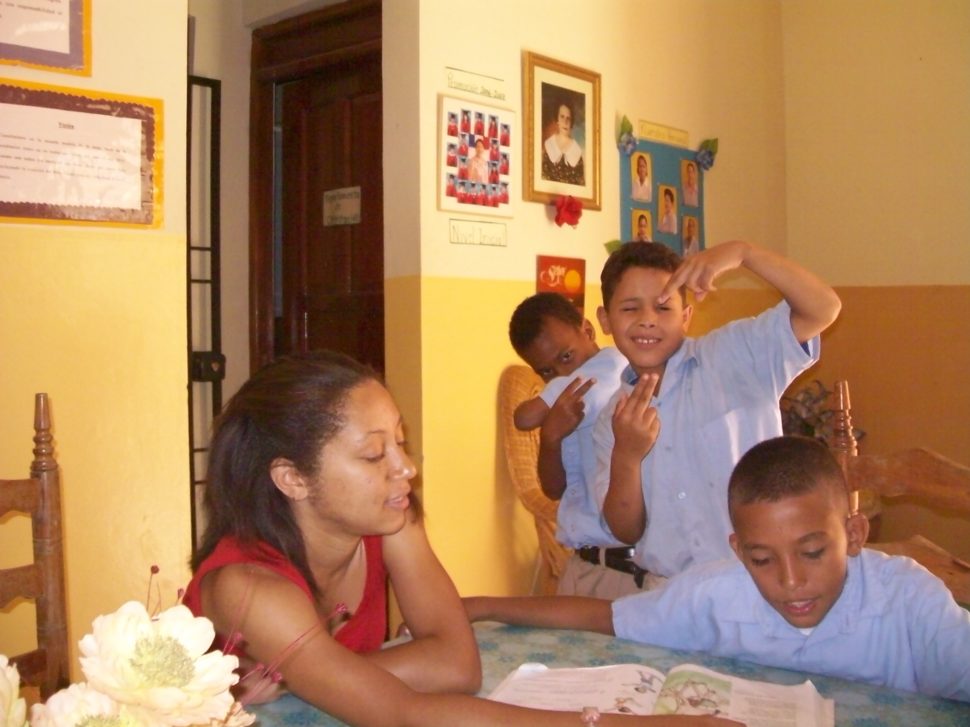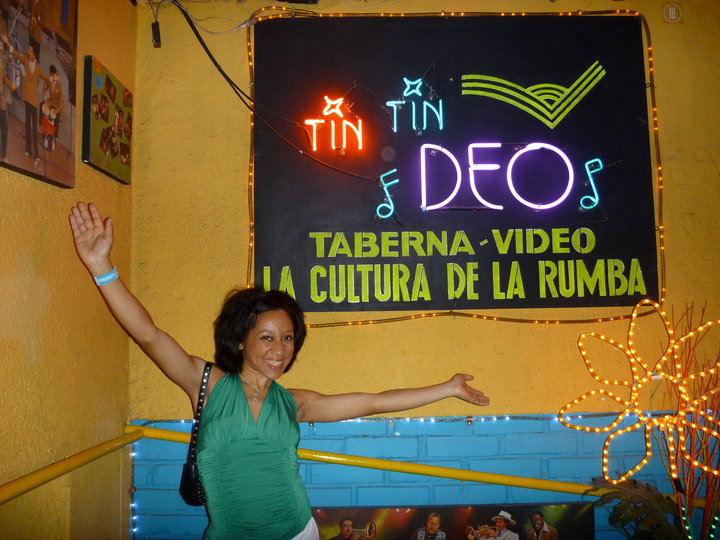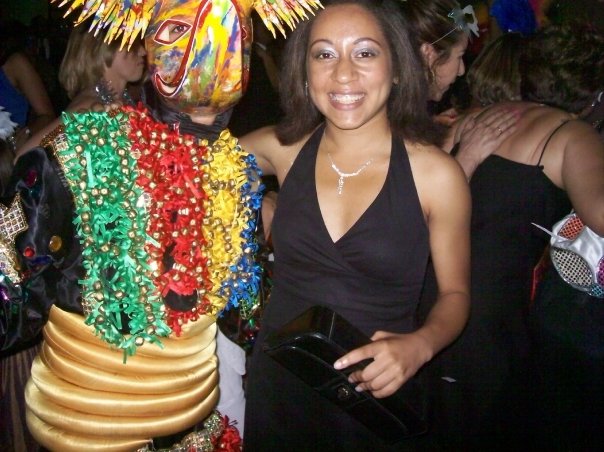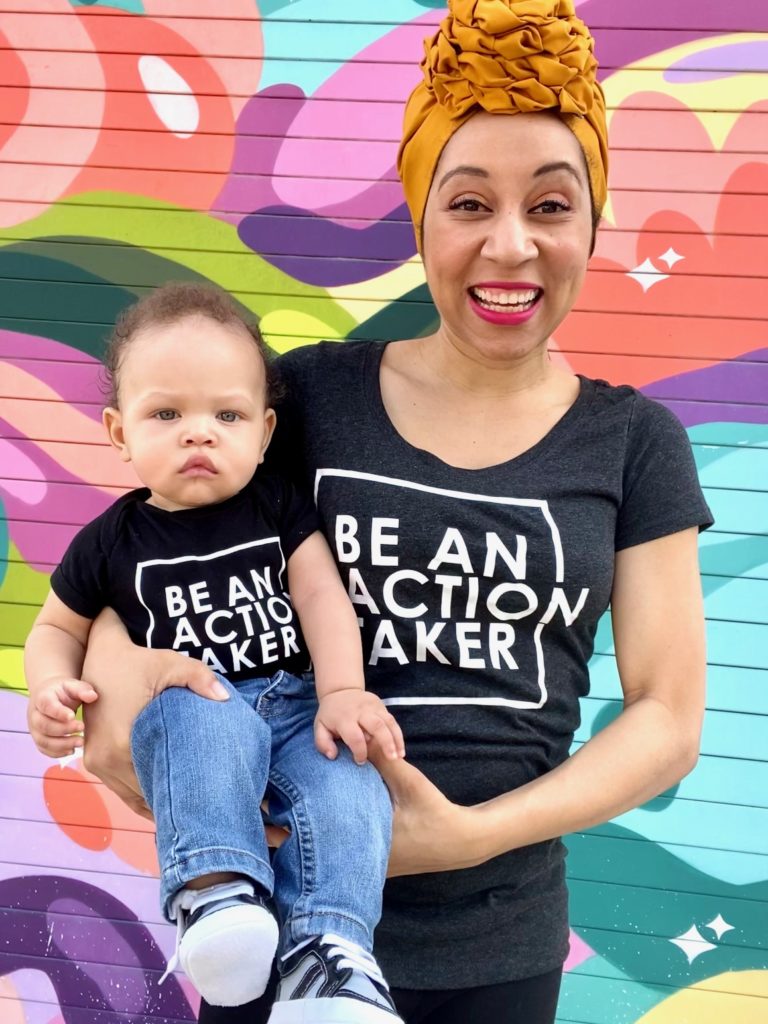Ohio-native Stephanie Claytor spent the last ten years of her life as a television reporter. After becoming fluent in Spanish while living in Latin America, she returned to the U.S. to tell the stories no one else was sharing: the stories of immigrants and the underserved.
The 32-year-old wife and mother of one quit her reporting job last year to stay home and raise her newborn son. She now works from home as a full-time blogger, writer, and content creator. Her memoir, Blacktrekking: My Journey Living in Latin America, details her experiences as a Black woman living in the Dominican Republic and Colombia.
RELATED: A Recent Traveler Drops 20 Helpful Tips For Visiting Cartagena, Colombia
“For years, I was afraid to publish my memoir for fear it would interfere with my reporting career. In 2019, I decided to fight my fears, and after many edits, went ahead and self-published it. I felt the stories and lessons learned were too powerful not to share,” Claytor told Travel Noire.
Claytor said her entire life has been shaped by travel. She has traveled to Canada, Mexico, Puerto Rico, Turks and Caicos, Cuba, Costa Rica, Ecuador, Ghana, Belgium, the Netherlands, the U.K., France, Japan, French Polynesia, and all over the U.S. She even met her husband in an airport.

Her first trip was at just a month old, and as a child, she traveled throughout the U.S. with her family.
“Our trip to California when I was ten probably had the most profound impact on my life. I learned the world was not all Black and white as it was back then in northeast Ohio.”
RELATED: Beyond the Headlines: Why The Dominican Republic Still Deserves Your Visit
She added, “I was amused by all the Asian and Latino culture I witnessed there, and all the different languages I was hearing. The trip inspired me to want to be bilingual. From then on, I made it one of my missions in life to become fluent in Spanish. I knew I wanted to pursue a career in communications, and I knew that would be difficult if I could not communicate with an entire population of people.”
Claytor went on to major in Spanish, along with broadcast journalism and international relations.
“When I attended Syracuse University, I met Dominicans whose native language was Spanish but who looked just like me. That fascinated me even more. I also experienced this when I traveled to Puerto Rico,” said Claytor. “Those experiences led me to study abroad in the Dominican Republic and then subsequently embark on a Fulbright English Teaching Assistantship in Colombia. I made it my mission during those years to study Black culture in Latin America and to compare it to the African American experience.”

Living in Colombia and the Dominican Republic were incredible learning experiences that profoundly impacted her life.
“In the Dominican Republic, I truly learned what it meant to be American and the meaning of the American Dream. I learned that not everyone has the opportunity to transcend the social class they were born into as easily as they can in the United States,” she said. “I learned how blessed we were in the U.S. to have basic things like endless hot water. I learned how blessed we were to easily get a passport and travel to almost any country in the world whenever we wanted to. I realized how we had easy access to credit and how privileged we were.”
“I witnessed first-hand our Black brothers and sisters in the Dominican Republic struggling without access to running water and dependable electricity. I witnessed our Black brothers and sisters in Colombia fighting for equal rights, access to college education, and paved roads.”
“I interviewed displaced Black Colombians, who fled their homes and left behind their families on Colombia’s Pacific coast because guerilla warfare groups had threatened to kill them. I began to understand more about immigration. I learned that others could not just book flights and travel whenever and wherever they want to. In many cases, they are stuck in their home countries with little chance of upward mobility.”
Claytor said living abroad also taught her about the beauty of these cultures, as well.

“I admire the people of San Basilio de Palenque, who have been able to maintain their native tongue since their ancestors were brought over on slave ships in the 1600s.”
“I admire the Black Colombians from Colombia’s Pacific coast, who had musical instruments like the marimba which came from Africa. They, too, kept many of their African traditions. I am an avid salsa, merengue, and bachata dancer, so I enjoyed dancing to Dominican’s Palos music, and their foods, such as plantains, whose roots come from Africa.”
“But on the other hand, as someone raised to identify myself as Black first, it was heartbreaking to see how some Dominicans negatively treated and talked bad about Haitians. I despised this behavior. I did not like their ideas and negative beliefs concerning Blackness. There was a lot of colorism taking place.”
“For instance, there were some ritzy nightclubs that would not let you in if your hair was kinky and not straight. There was a definite desire to be as light and white as you could. Because I am a light-skinned Black woman and my hair was relaxed straight, I did not have too many issues, but I did not like how some of my friends with darker skin were treated. I wrote about this in my book in a chapter called ‘Skin Tone Matters.’ ”

“In Colombia, I wore my hair in a short afro, and there were not too many Black women walking around with afros. Aside from the occasional stares, I would say I felt ignored and invisible unless I was around Afro-Colombians. I always had fun with them. Otherwise, I did not find Colombia to be too welcoming. In Bogotá, everyone seemed concerned with their jobs, studying, and taking care of their families. They kept to themselves and their friend groups.”
“When I visited Quibdo, the capital of Choco, Colombia’s most Black state, I loved it. I was welcomed into homes. I loved the nightlife. I felt at home there. In Cartagena, there were more tourists, and I had a lot of fun there, too. It felt more welcoming.”
“Also, I loved San Andres, an island that belongs to Colombia. There, the people were super welcoming, and the native islanders who lived there spoke Creole English. They are descendants of enslaved people from Jamaica.”
In addition to opening her eyes to the way others live and teaching her compassion, Caytor said travel introduces her to new ideas and diversifies her palate.
“I often return with new customs and traditions, and incorporate what I learn abroad into my own lifestyle. I enjoy the adventure and discovering new cultures. Traveling teaches me how to interact with people who may look, act, and believe differently than me. It cultivates a deeper understanding of humankind.”

“Traveling has forced me to appreciate everything I own and put less focus on material things and possessions. My travel memories are some of the most valuable things I possess. I prefer creating memories traveling over buying a bunch of material things any day. Traveling has taught me to be flexible and adapt to any situation presented to me. I learned how to be independent and self-sufficient.”
For now, she is avoiding travel for the safety of her infant son but is looking forward to being able to travel again.
“On my radar are trips statewide to explore more of the Gullah-Geechee culture and history in South Carolina, and Black history in Richmond and Hampton, VA. Also, I would like to go abroad to Barbados and Tanzania.”
“Fortunately, we live in the middle of Florida between Tampa and Orlando, where there is great weather and plenty of trails and beaches. I have been using this time to explore closer to home, checking out different trails and beach towns, as well as Black and locally-owned restaurants during these day trips.”
To learn more about Stephanie and her travels, check out her blog, www.blacktrekking.com, and follow her at @blacktrekking_.





